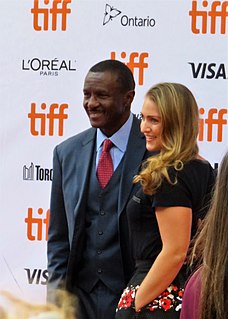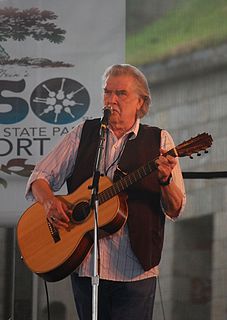A Quote by Dwane Casey
It irks me when I read the narrative that 'Dwane is salty.' I can't say anything right.
Related Quotes
Reader's Bill of Rights 1. The right to not read 2. The right to skip pages 3. The right to not finish 4. The right to reread 5. The right to read anything 6. The right to escapism 7. The right to read anywhere 8. The right to browse 9. The right to read out loud 10. The right to not defend your tastes
I often say to my students in workshops that if they are trying to find literary inspiration, they should not go and read novels, because novels are more appropriate for series. Where as they should read short stories - that's the right format for you to be able to actually display the narrative in a film.
There's some ambient music that doesn't do anything. I wouldn't say that that's narrative. It is narrative in that it creates a sort of world where nothing happens, where really nothing happens, so you become a different person after hearing eight minutes of exactly the same thing. Yes, I hear music all the time in which one idea is strung together to another idea, and I feel that such music is non-narrative.
The book on my nightstand right now isnt anything that inspired me, but it entertained me. I read a book on Labor Day, it was a holiday, and I have three daughters, and we all went to the shopping mall and I sat on the bench and read a book while they shopped, it was called The Greatest Golfer there Ever Was, it was a great book, easy to read and entertaining.
Anything that happens after I write a song...that's fine with me. It's up to the listener to read into it what they need from it. And that's part of the reason I write like I do, so I can leave the holes in the right places so people can say, 'Yeah, that happened to me,' and they're able to have their own little fantasy about it.
Say you have a headline like "Mountain Bike Stolen," and then you read the story, read another story about it the next day, and then the next week, and then the next year. News is a process of expansion, the filling in of detail, and making narrative connections - not based on chronology, but based on features of the story. There are narrative connections made between props, between characters, between situations, and so forth.
Young screenwriters are always very frustrated when they talk to me. They say, 'How do we get to be a screenwriter?' I say, 'You know what you do? I'll tell you the secret, it's easy: Read 'Hamlet.' You know? Then read it again, and read it again, and read it until you understand it. Read 'King Lear,' and then read 'Othello.'
To read fiction means to play a game by which we give sense to the immensity of things that happened, are happening, or will happen in the actual world. By reading narrative, we escape the anxiety that attacks us when we try to say something true about the world. This is the consoling function of narrative — the reason people tell stories, and have told stories from the beginning of time.
If you are going to write, say, fantasy - stop reading fantasy. You've already read too much. Read other things; read westerns, read history, read anything that seems interesting, because if you only read fantasy and then you start to write fantasy, all you're going to do is recycle the same old stuff and move it around a bit.






































